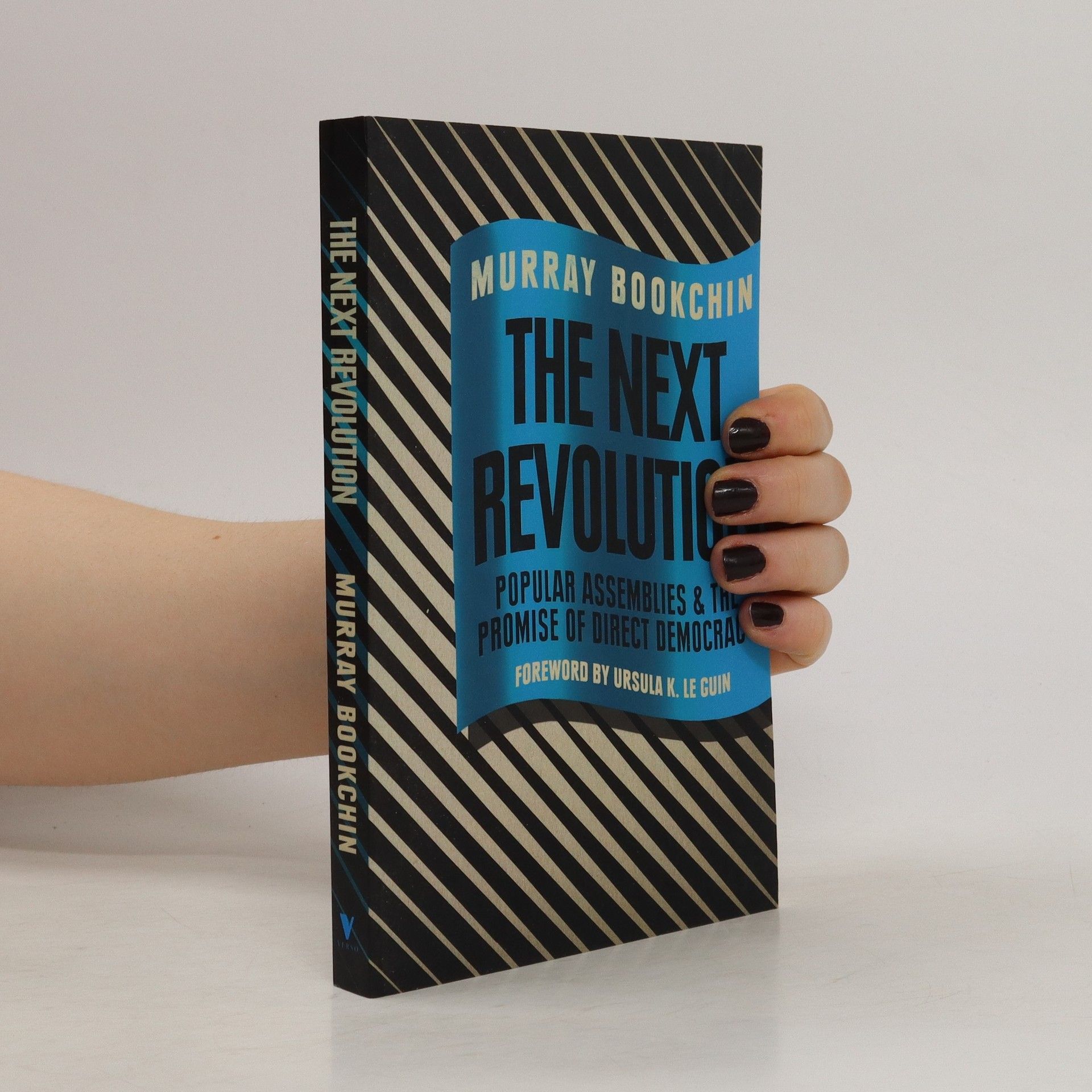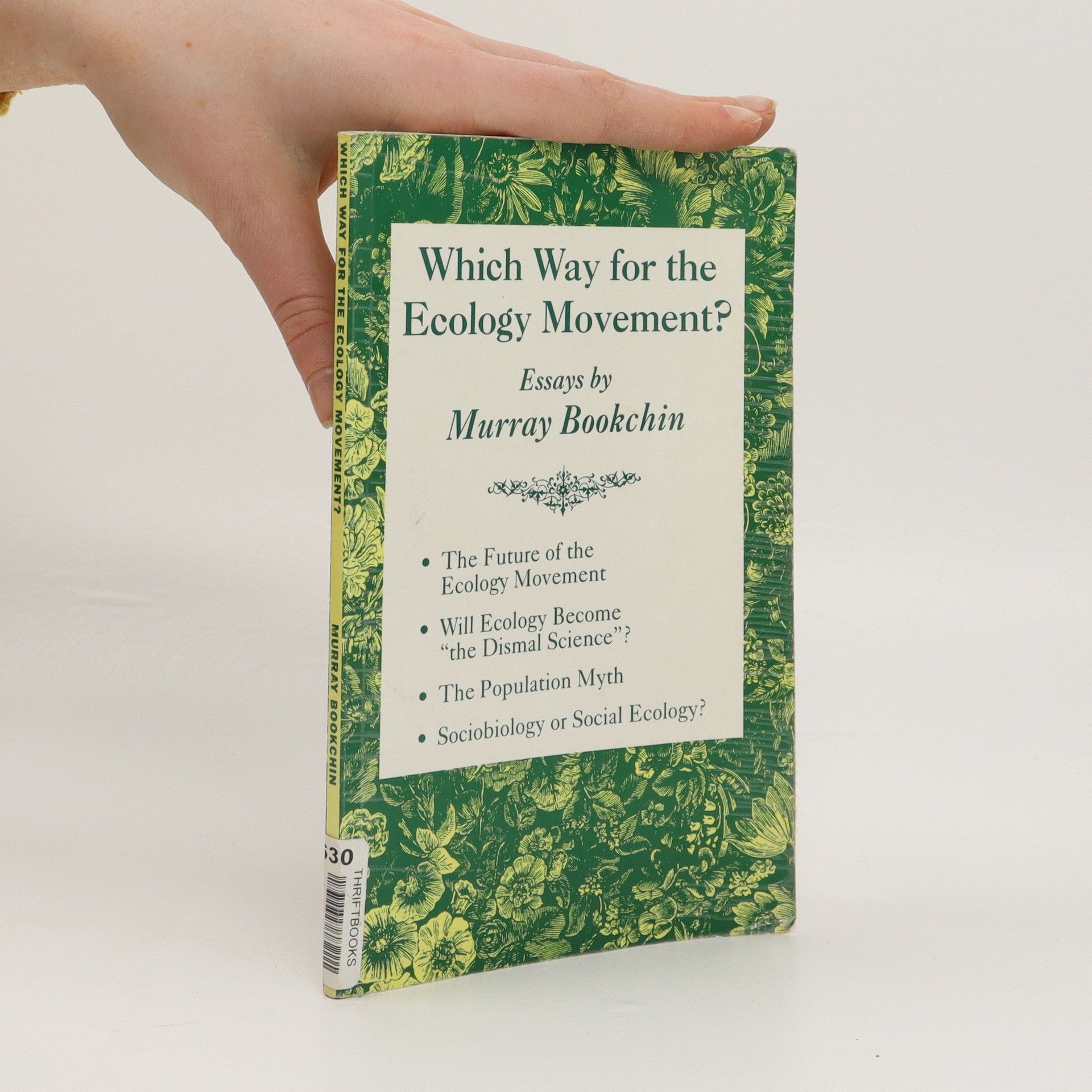Exploring transformative ideas, this work reflects a lifetime of contemplation on societal change. It delves into innovative concepts and strategies aimed at improving communities and fostering progress. The author presents a compelling vision for a better future, encouraging readers to engage with the possibilities of social reform and collective action. Through insightful analysis and thought-provoking proposals, it serves as both a call to action and a guide for those seeking to make a meaningful impact.
Murray Bookchin Ordine dei libri (cronologico)
Murray Bookchin è stata una voce pioniera nel movimento ecologista, fondando la filosofia dell'ecologia sociale all'interno del pensiero anarchico e socialista libertario. I suoi estesi scritti hanno esplorato temi anticapitalisti e sostenuto la decentralizzazione sociale secondo linee ecologiche e democratiche. Bookchin ha sviluppato teorie del municipalismo libertario, promuovendo una democrazia di assemblea faccia a faccia che ha influenzato i movimenti verdi e i gruppi di azione diretta. Il suo lavoro offre una visione avvincente per ripensare le strutture sociali attraverso una lente ecologica.
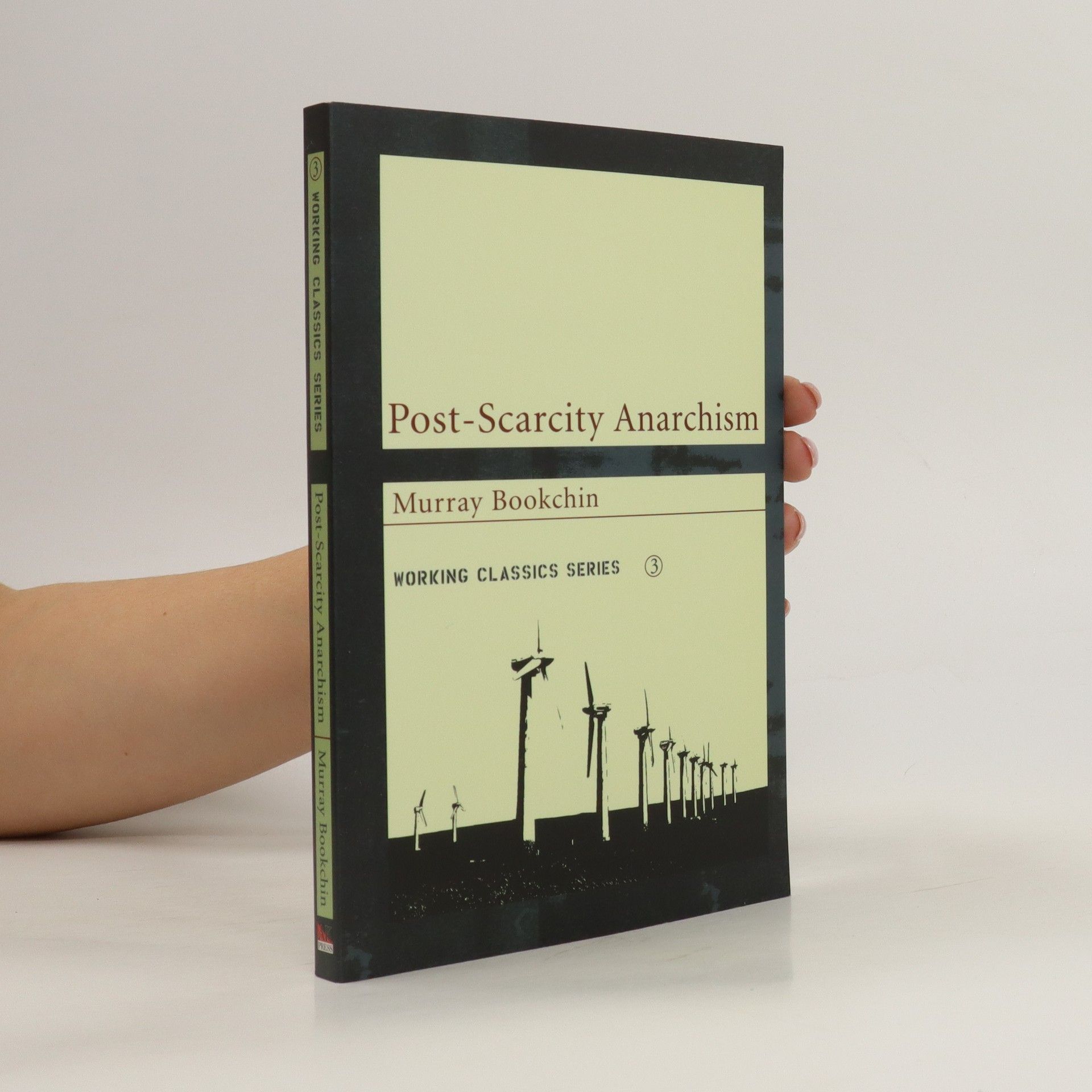
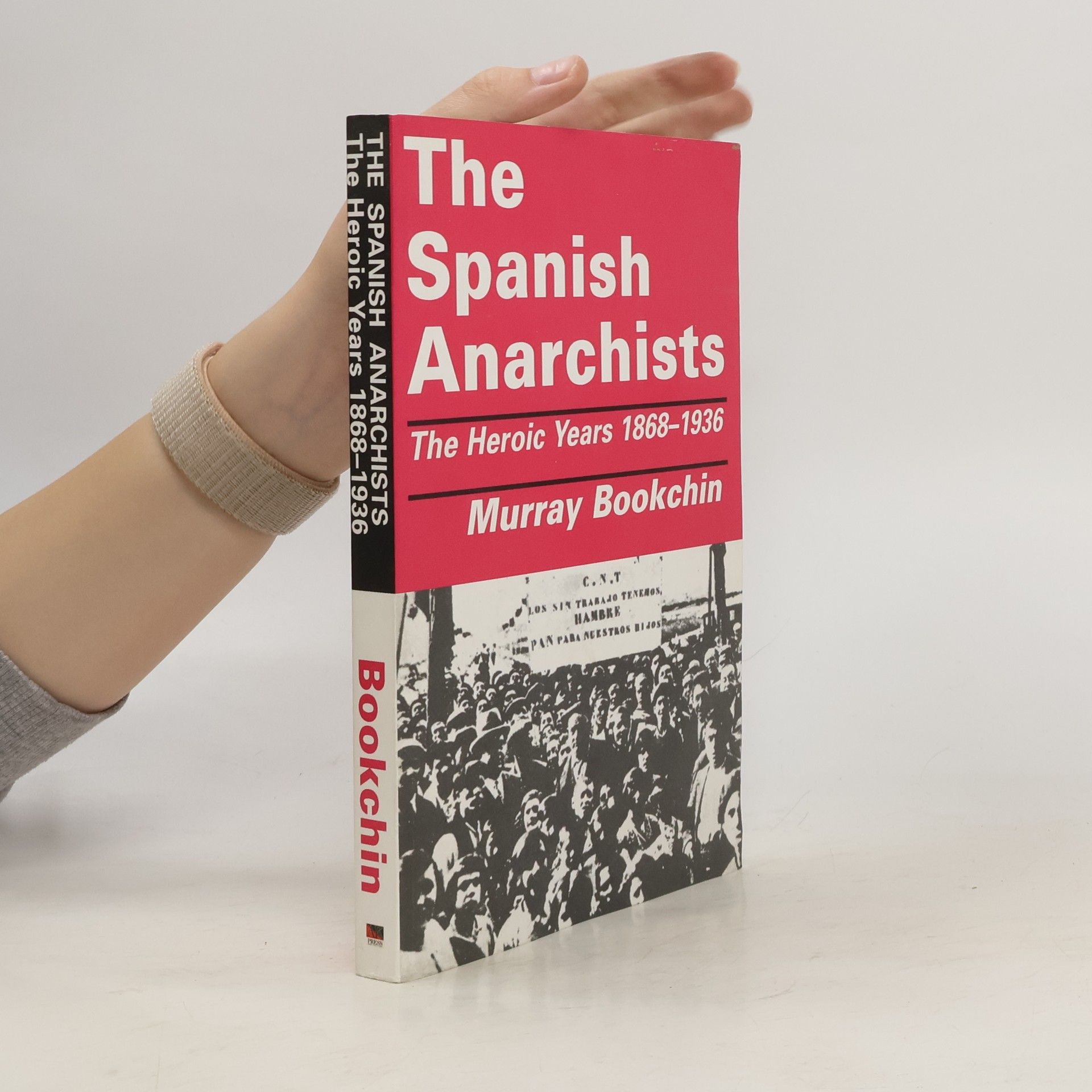



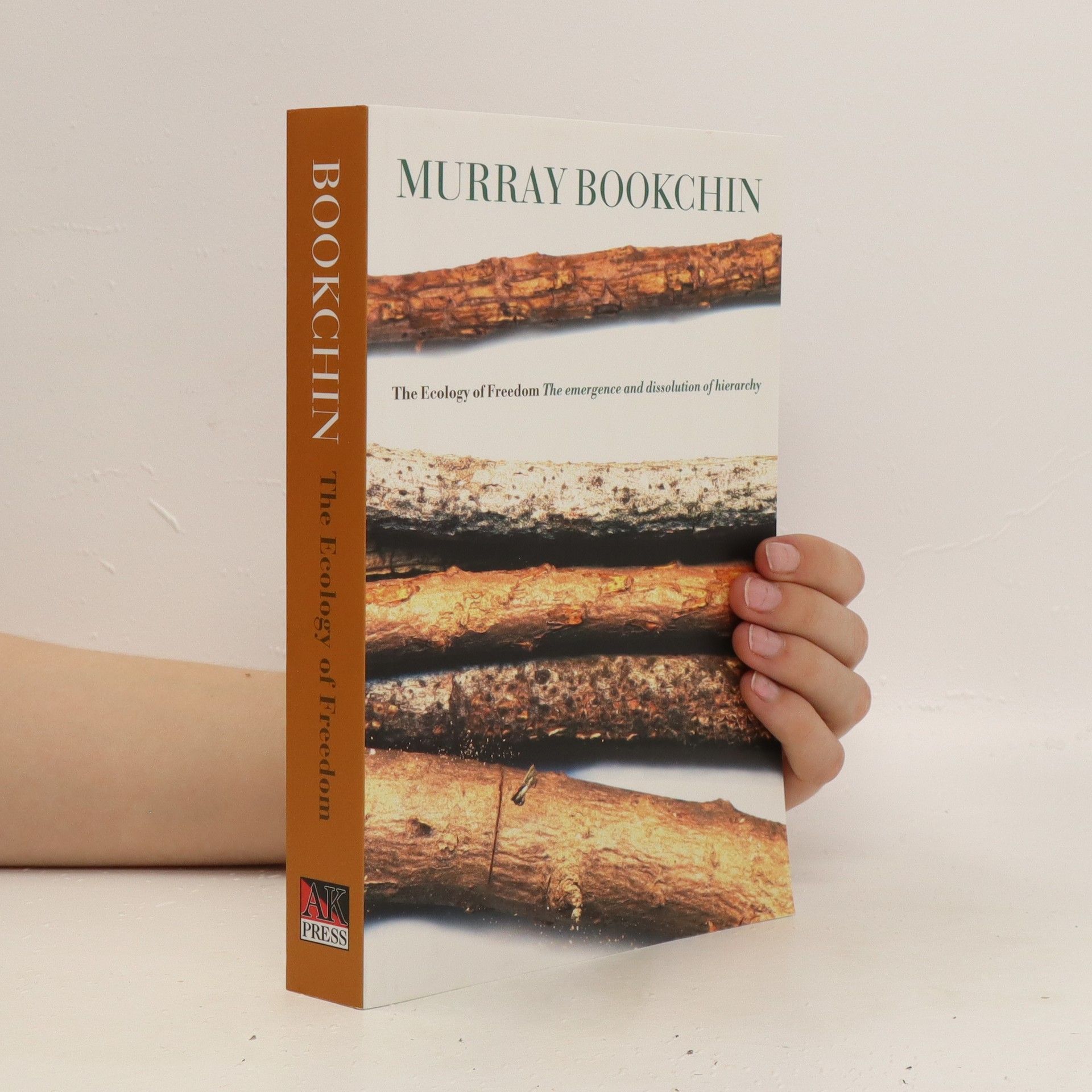
Remaking Society: A New Ecological Politics
- 224pagine
- 8 ore di lettura
Moving toward an ecological utopia. According to Murray Bookchin, a humane solution to the climate crisis--a crisis he was among the first to identify--will require replacing industrial capitalism with an egalitarian, ecological society, decentralized democratic communities, and sustainable technologies like solar power, organic agriculture, and humanly scaled industries. Since he first penned these ideas, our situation has only gotten worse, and people want answers. Drawing on rich traditions of ecological science, anthropology, history, utopian philosophy, and ethics, Remaking Society offers today's environmentalists a coherent framework for social and ecological reconstruction. This pioneering work on nature and society provides readers with clear strategies for averting disaster.
A treatise on social ecology. "Ecological ethicsnot based on self-interest." --Kingston Whig-Standard"A worthwhile read. Bookchin is the prophet of the green revolution."--Libertarian Labor Review
Our Synthetic Environment
- 264pagine
- 10 ore di lettura
Originally published in 1962, Our Synthetic Environment is a pioneering work that exposes the negative effects that chemicals and other toxins in our environment have on human health. From the degradation of our food and soil due to industrial agricultural methods, to how pollution, radiation and other issues with the air we breathe and the way we live are the causes of illnesses like cancer, the book was visionary in its anticipation of many of the ecological problems our planet faces today. Written by one of the leading eco-thinkers of the twentieth century, Our Synthetic Environment is as vital a read today as it was sixty years ago. An essential companion to Rachel Carson's Silent Spring, this new edition of Our Synthetic Environment features an introduction by environmentalist and best-selling author Bill McKibben.
Our ecological problems stem from our social problems. Here's a framework for understanding both. What is nature? What is humanity's place in nature? And what is the relationship of society to the natural world? In an era of ecological breakdown, answering these questions has become of momentous importance for our everyday lives and for the future that we and other life-forms face. In the essays of The Philosophy of Social Ecology, Murray Bookchin confronts these questions head on: invoking the ideas of mutualism, self-organization, and unity in diversity, in the service of ever expanding freedom. Refreshingly polemical and deeply philosophical, they take issue with technocratic and mechanistic ways of understanding and relating to, and within, nature. More importantly, they develop a solid, historically and politically based ethical foundation for social ecology, the field that Bookchin himself created and that offers us hope in the midst of our climate catastrophe.
The Next Revolution
- 198pagine
- 7 ore di lettura
From Athens to New York, recent mass movements around the world have challenged austerity and authoritarianism with expressions of real democracy. For more than forty years, Murray Bookchin developed these democratic aspirations into a new left politics based on popular assemblies, influencing a wide range of political thinkers and social movements. With a foreword by the best-selling author of The Dispossessed, Ursula K. Le Guin, The Next Revolution brings together Bookchin’s essays on freedom and direct democracy for the first time, offering a bold political vision that can move us from protest to social transformation.
In this series of essays, Murray Bookchin balances his ecological and anarchist vision with the promising opportunities of a “post-scarcity” era. Technological advances during the 20th century have expanded production in the pursuit of corporate profit at the expense of human need and ecological sustainability. New possibilities for human freedom must combine an ecological outlook with the dissolution of hierarchical social relations, capitalism and canonical political orientation. Bookchin’s utopian vision, rooted in the realities of contemporary society, remains refreshingly pragmatic. “Book-chin makes a trenchant analysis of modern society and offers a pointed, provocative discussion of the ecological crisis.”—Library JournalMurray Bookchin has been an active voice in the ecology and anarchist movements for more than 40 years.In Oakland, California on March 24, 2015 a fire destroyed the AK Press warehouse along with several other businesses. Please consider visiting the AK Press website to learn more about the fundraiser to help them and their neighbors.
The Spanish Anarchists: The Heroic Years 1868-1936
- 316pagine
- 12 ore di lettura
The seminal history of Spanish anarchism: from its earliest inception to the organizations that claimed over two million members on the eve of the 1936 Revolution. Hailed as a masterpiece, it includes a new prefatory essay by the author."I've read The Spanish Anarchists with the excitement of learning something new. It's solidly researched, lucidly written, and admirably fair-minded... Murray Bookchin is that rare bird today, a historian." —Dwight MacDonald"I have learned a great deal from this book. It is a rich and fascinating account... Most important, it has a wonderful spirit of revolutionary optimism that connects the Spanish anarchists with our own time." —Howard ZinnMurray Bookchin has written widely on politics, history, and ecology. His books To Remember Spain: The Anarchist And Syndicalist Revolution Of 1936, The Ecology of Freedom, Post-Scarcity-Anarchism, The Ecology of Freedom, and Social Anarchism or Lifestyle Anarchism: An Unbridgeable Chasm—are all published by AK Press.
Which Way for the Ecology Movement?
- 75pagine
- 3 ore di lettura
In the essays that make up this book, Murray Bookchin calls for a critical social standpoint that transcends both "biocentrism" and "ecocentrism." A call for new politics and ethics of complementarity, in which people, fighting for a free, nonhierarchical, and cooperative society, begin to play a creative role in natural evolution. Bookchin attacks the misanthropic notion that the environmental crisis is caused mainly by overpopulation or humanity's genetic makeup.He resolutely points to social causes—patriarchy, racism, and a capitalistic "grow or die" economy—as some of the problems the environmental movement must deal with. These ideas have to be confronted by environmentally concerned readers if the ecology movement is not to destroy its own potential as a force for social change and the achievement of a truly ecological society.Murray Bookchin's writings have profoundly influenced ecological thinking over the last forty years. Now in his 80s, he has been a life-long radical, a trade union activist in the 30s and 40s, an innovative theorist in the 60s, and a leading participant in the anti-nuclear and radical wing of the Greens in the 70s and 80s. His ideas on social ecology have been important contributions to left libertarian thinking.
The ecology of freedom: the emergence and dissolution of hierarchy
- 491pagine
- 18 ore di lettura
"The very notion of the domination of nature by man stems from the very real domination of human by human."With this succinct formulation, Murray Bookchin launches his most ambitious work, The Ecology of Freedom. An engaging and extremely readable book of breathtaking scope, its inspired synthesis of ecology, anthropology, and political theory traces our conflicting legacies of hierarchy and freedom, from the first emergence of human culture to today's globalized capitalism, constantly pointing the way to a sane, sustainable ecological future. On a college syllabus or in an activist's backpack, this book is indispensable reading for anyone who's tired of living in a world where everything is an exploitable resource.
